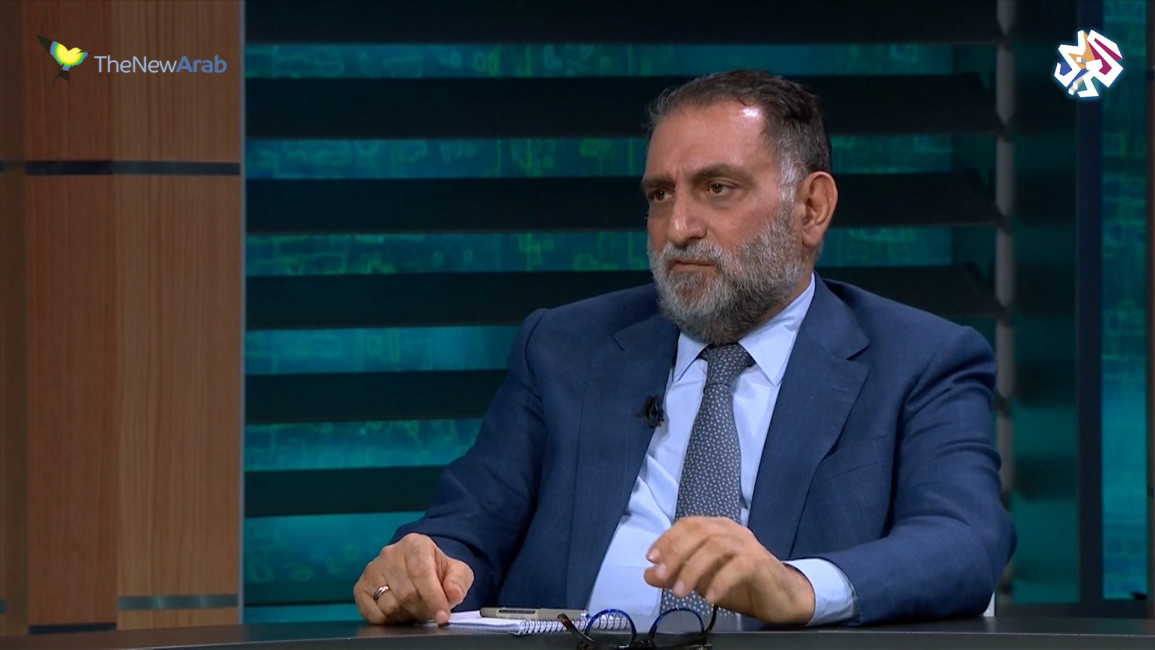Arab intellectual Dr. Azmi Bishara reveals the real purpose of the UAE-Israel alliance
In a surprise announcement this month, Israel and the UAE confirmed they would normalise ties, sparking fury among Palestinians and Arabs. The deal has also raised concerns that it could encourage further normalisation deals being agreed between other Arab countries and Israel.
Dr. Bishara said the agreement cannot be viewed as merely "normalisation" since the deal didn't follow on from a state of war, as was the case with the only other two Arab states to have formal ties with Israel - Egypt and Jordan.
Rather than viewing the deal as a process of secretive relations coming out into the open, Dr. Bishara urged for the wider regional implications of normalisation to be considered more deeply.
Deeper ties with IsraelAs part of the normalisation agreement, also known as the "Abraham Accord", Israel agreed to suspend its planned annexation of parts of the occupied West Bank.
Netanyahu has since said that the annexation plans have only been put on hold and could go ahead at a later date.
"Saying that the Palestinian cause was a factor in the agreement is absurd. It wasn't one of the factors," Dr. Bishara said.
Describing the accord's name as "Abraham" was "ridiculous", the academic said, and the "question of inter-religious peace or dialogue suggested by this title is just a smokescreen".
| |
Dr. Bishara viewed the motivations behinds the deal in an entirely different light.
"In the Emirati case, we are talking about a joint strategic political vision between Israel and the UAE for the region, which includes among other things, a rejection of democratic change as well as a hostility to political Islam, Iran and Turkey," he said.
The UAE is the first Gulf state to normalise relations with Israel and only the third Arab country to do so.
Dr. Bishara pointed out that bringing the relationship between the two countries into a public sphere is also of vital importance to Israel.
Whereas previously Arab countries have been hesitant in publicising their relationship with Israel, Dr. Bishara believes that Abu Dhabi is convinced Israel is a true friend.
| |
For the agreement to be justified, Dr. Bishara noted that the normalisation came with "media campaigns" intended to "defame the Palestinians".
Describing it as assuaging cognitive dissonance, the Palestinian academic added: "If the cause is just, how can I justify what I'm doing? If the Palestinians are a heroic, resisting people what does that make me? Therefore, I have to ruin the image of the Palestinians."
Abu Dhabi believes its ambitious role in the region obliges it to find a strong regional ally, Dr. Bishara said.
And in this sense, an alliance with the US would not suffice. "They (in the UAE) agree with Israel, even when America sometimes disagrees with them (as in the case of the Iranian issue, for example)," he said.
Dr. Bishara explained that Israel and the UAE are wholly united in the view that any democratic changes in the Arab world constitute a threat to their path for regional hegemony.
| |
While Dr Bishara considers the agreement hostile to Arabs, he said that perhaps the most disturbing aspect of the deal is that it gives sanctification the Israeli right's belief in the use of force, as well as shielding Israel from making future concessions to Arab states.
He said that the agreement "isn't just a win for Israel, it's a win for the Israeli right within Israel".
Who else will follow suit?
When asked which countries are likely to follow the UAE in normalising ties with Israel, Dr. Bishara said he expected Bahrain to do so.
"This cannot happen without Saudi approval," as he put it.
| |
It is considered unlikely that normalisation will occur in the foreseeable future with other Arab states, despite Israel and other Gulf countries reportedly already being in contact.
Read more: Beware the US-Israel-UAE strategic agenda for the Arab region
Dr. Bishara described Khartoum's relationship with Israel as complicated but acknowledged that the UAE is trying to draw its allies, including Sudan, into an agreement - possibly resorting to blackmail to push it through.
The Arab intellectual criticised the silence of Arab countries towards the Palestinian issue. "The silence of those countries who claim that Palestine is a non-negotiable issue for them is very strange," he said.
"There is no excuse for not criticising this move."
Looking to the future, Dr. Bishara said that "what must be established today is a united local Palestinian front that imposes itself on the Arabs and the world".
| |
Criminal negligence and the failure of Lebanon's sectarian system
Considering this month's cataclysmic explosion at Beirut's port and the political possibilities presented by the verdict of an UN-backed court on the 2005 assassination of late premier Rafic Hariri, Dr. Bishara expects the so-called "political class" in Lebanon to form a government of "national unity" to save the sectarian system.
In regards to the Beirut port explosion, Dr. Bishara applied the comments of former Soviet leader Mikhail Gorbachev after the Chernobyl disaster - "the entire system is responsible for what happened".
Describing the explosion as the result of "criminal negligence", Dr. Bishara said "even a military attack on Beirut wouldn't have produced something worse than this".
| |
A massive blast at Beirut's port this month killed 181 people, wounded thousands, and ravaged huge areas of the capital. The event has also deepened Lebanon's economic and political crisis, causing further public anger.
Dr. Bishara said he doubts the sect-based political structure can be changed by force considering how Lebanon's civil war strengthened this system rather than weakened it.
Read more: To pre-empt disaster capitalism, Beirut urgently needs a people-centred recovery
Speaking about Lebanon's anti-government protest movement, which Dr. Bishara calls a "cultural revolution" against sectarianism and quotas, the director of the Arab Center said: "After a hundred years of the sectarian system in Lebanon, there is now a new generation that no longer accepts this sectarian structure and wants a citizenship-based state."
However, he warned that the answer to the crisis would be "the sectarian system rescuing itself with a government of national unity".
Follow us on Facebook, Twitter and Instagram to stay connected


![President Pezeshkian has denounced Israel's attacks on Lebanon [Getty]](/sites/default/files/styles/image_684x385/public/2173482924.jpeg?h=a5f2f23a&itok=q3evVtko)



 Follow the Middle East's top stories in English at The New Arab on Google News
Follow the Middle East's top stories in English at The New Arab on Google News


